Khatami’s Unexpected Victory
In the 1980s, the politician Mohammad Khatami was a member of the Islamic Republic’s left-wing faction, which was then viewed as less pragmatic and more ideological in its nature. However, he and his associates gradually endorsed political pragmatism and, to a certain extent, some of the principles of Western democracies. When Khatami became Iran’s minister of culture in 1982, he was an ideological hardliner, but by the time he ended his tenure at the ministry in 1992, he pushed relatively more open policies when it came to the production and licensing of cinema, books and printed media — policies that were harshly criticized by the Leader’s associates, eventually forcing him to resign from his position.
Khatami’s unexpected victory in the May 1997 presidential election brought to power a rather moderate group of previous left-wingers known as the reformists, who sought political reforms within the Iranian regime. The reformists justified political reforms based on pragmatic considerations, arguing that such reforms would guarantee the survival of the Islamic Republic. They were also in favor of more pragmatism in foreign policy through establishing better relations with European countries and reducing tensions with the US.
Over the course of the 1997 election, Akbar Hashemi Rafsanjani and many of his confidantes supported Khatami against their former allies in the Iranian regime’s right wing, who were mostly referred to as the conservatives (rather than the right-wingers) in the aftermath of the 1997 election.
In that election, a great majority of Ayatollah Khamenei’s appointees, including his representative in the Islamic Revolutionary Guards Corps, the IRGC, supported Khatami’s rival, Ali-Akbar Nategh Nouri, who badly lost the presidential contest to Mohammad Khatami. The Supreme Leader himself did not openly support Nategh Nouri, but there was no doubt that he did not support Khatami’s approach toward more political and diplomatic openness.
Khamenei Regains Confidence
Mohammad Khatami’s landslide victory was followed by a short period during which Ayatollah Khamenei pulled back from confronting the new president’s policies. But the Leader and his appointees progressively regained their confidence and effectively prevented the new administration from implementing its domestic and international policies. In this period, the Leader’s appointees accused Khatami and his administration of ideological revisionism and of diversion from the principles of the Islamic Republic.
Hashemi Rafsanjani and his confidantes, too, became gradually critical of Khatami’s team. Many pro-Khatami reformists had long-term unsettled scores with Akbar Hashemi Rafsanjani and his allies that went back to the time of Rafsanjani’s presidency, when the two camps belonged to the rival factions of the Islamic Republic. As a result, many reformists did not really believe they needed to continue their coalition with Rafsanjani and his associates in the long term. The disagreements between the two camps intensified on the eve of the February 1999 parliamentary election, when influential reformist parties did not only refrain from placing Rafsanjani on their list of candidates, they launched a massive attack against him in their newspapers. As a result, Rafsanjani finally withdrew from the parliamentary election.
After this election and another landslide victory for pro-Khatami forces, not only did Rafsanjani and most of his associates end their coalition with the reformists, but Ayatollah Khamenei, who was obviously worried about the consecutive victories of the pro-reform camp, started forcefully confronting Khatami’s supporters. Khamenei was apparently convinced that the reformists, after controlling the executive and legislative branches of the government, and through the help of their numerous popular newspapers, were working to strip the Leader of his authoritarian powers. He was also worried that the reformists and their media allies, in the name of pragmatism and democratic values, were paving the way for a gradual transformation of the Islamic Republic to a non-revolutionary government.
Under such circumstances, the Leader mobilized the powerful government institutions that were under his control, including the judiciary, the IRGC, Iran’s state-run television network and the paramilitary Basij force, against the reformists. In April 1999, after the Leader’s fiery speech against reformist newspapers, the judiciary banned 18 newspapers and launched a massive campaign against the reformists. This campaign continued until the end of Khatami’s first term and throughout his second presidential term.
Post-September 11 Events
The September 11 terrorist attacks took place at the beginning of Khatami’s second term, prompting the US to launch an unprecedented “War on Terror” campaign.
The US invasion of Afghanistan led the Islamic Republic to worry that Iran might be the target of the next regime-changing military operation. This concern temporarily strengthened the position of President Khatami and his associates, who suggested Tehran needed to adopt more cautious policies in the region to avoid a possible military conflict with the US. They believed the extremist Sunni Taliban government was a threat to Shia Iran’s national security, concluding that Tehran could take advantage of the situation if US troops overthrew the group.
In this period, Iran even took an unprecedented decision to hold secret talks with the Bush government to share intelligence that could facilitate the overthrow of the Taliban. After the Taliban’s defeat, Tehran expected the George Bush administration to reward the Islamic Republic by guaranteeing that Washington would rule out any effort to change the Iranian regime.
However, a series of unexpected events meant that improvement in Tehran-Washington relations never materialized. One of the events was that, about three months after the fall of the Taliban, Israel stopped an Iranian ship called "Karin A" in the Red Sea, stating that it was carrying weapons toward Gaza. The Karin A episode garnered widespread news coverage in the Western media and met with strong backlash from the Israeli and US governments. It was only 27 days after the incident that George Bush referred to Iran as part of the "Axis of Evil.”
The post September-11 climate had a long-term impact on Ayatollah Khamenei’s perception of pragmatic solutions in foreign policy. Over the course of the following years, the Leader repeatedly referred to the Axis of Evil episode to affirm that Iran’s rather flexible policies after September 11 had not borne any fruit for the Islamic Republic.
In the next part of this series, we will review the era of Mahmoud Ahmadinejad and the developments that took place after his emergence in Iran’s political arena.
Read other articles in the series:
Decoding Iran's Politics: Khamenei's Move Away From Pragmatic Politics (Part One)
Decoding Iranian Politics: Ayatollah Khamenei’s Stance on the JCPOA
visit the accountability section
In this section of Iran Wire, you can contact the officials and launch your campaign for various problems




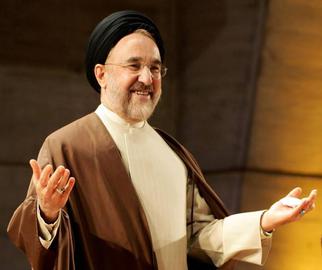

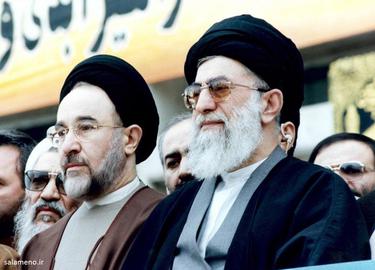
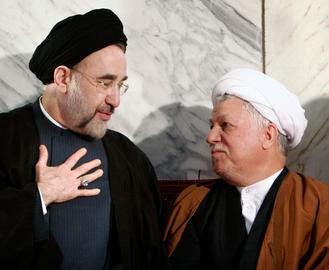
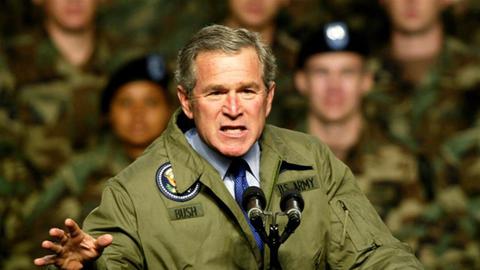




















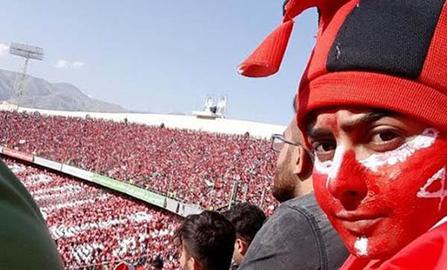
comments